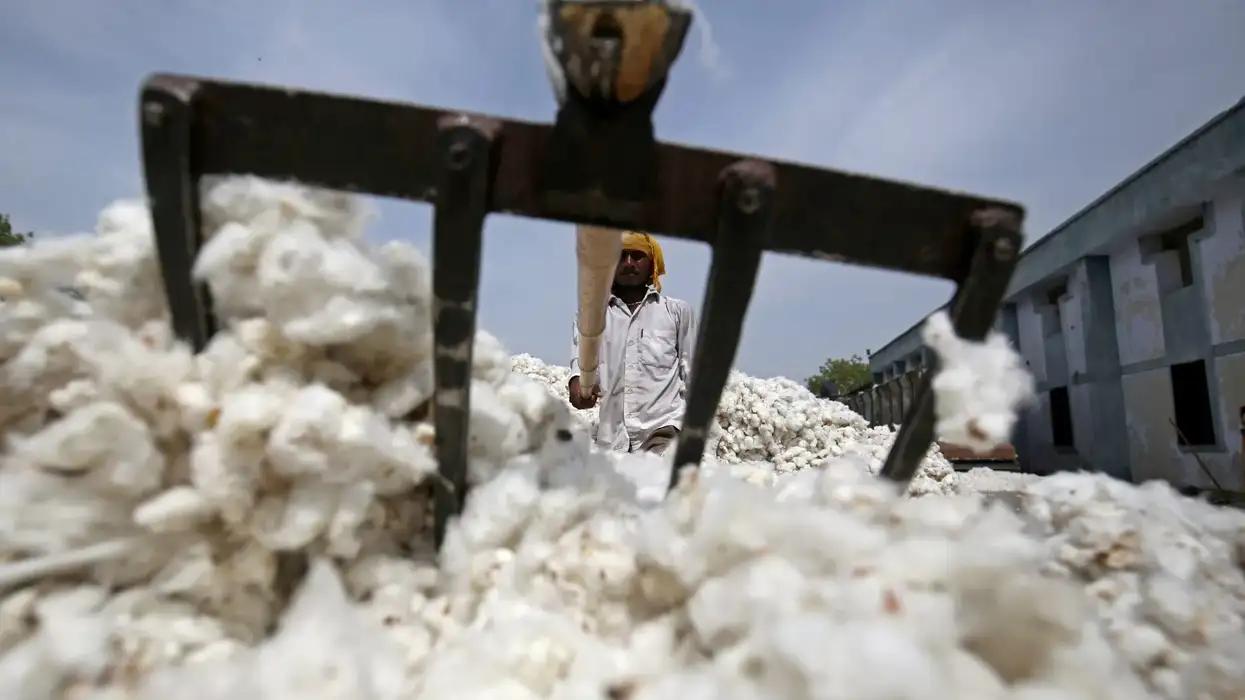Pakistan lifted a nearly two-year ban on sugar and cotton imports from arch-rival India on Wednesday, the finance minister said, a step towards reviving suspended trade between the two nuclear-armed neighbours.
Pakistan's Economic Coordination Council (ECC), a top decision-making body, allowed the private sector to import 0.5 million tonnes of white sugar as Islamabad tries to keep soaring domestic prices in check.
Pakistan finance minister Hammad Azhar announced the decision after the ECC concluded, confirming what sources had said earlier, adding it will also import cotton and cotton yarns from India.
"If opening trade with some country lessens burden on the pocket of an ordinary person, there is no harm in it," Azhar told a news conference in Islamabad. "The price of sugar in our neighbour India is quite a bit lower than Pakistan."
The trade is open until June 30 for local private sector to import the sugar while cotton and cotton yarns could be brought in by both the private companies and Pakistan's government bodies.
New Delhi is yet to make any comment on the decision.
Pakistan was one of the leading buyers of Indian cotton until 2019, when Islamabad banned imports of goods from India after New Delhi revoked the special status of its portion of the Kashmir region that both countries claim.
Pakistani buyers have already started making inquiries about buying Indian sugar and cotton, which is being offered at lower prices than supplies from other countries, five dealers said.
India is the world's biggest producer of cotton and the second biggest sugar producer. Exports to its neighbour will reduce surpluses that are weighing on its local markets, while helping Pakistan to lower soaring sugar prices ahead of Ramadan.
PRICE CHECKS
The push comes amid a gradual thawing in ties between the two neighbours, which have fought three wars since gaining independence in 1947. The militaries of both countries released a rare joint statement last month, announcing a ceasefire along a disputed border in Kashmir.
"Inquiries for sugar and cotton are going on for price checking," said the India head of a global trading firm, who declined to be identified due to company policy.
Pakistan has been looking to tap the international market for sugar, floating two tenders for 50,000 tonnes in the last month. It rejected bids on both tenders in March.
The first tender offer was priced at $540.10 per tonne on a cost and freight basis (C&F) and the second at $544.10 tonne, European traders said.
India is offering sugar at a discount compared to supplies from Thailand, a dealer with global trading firm said.
"Pakistani traders have been buying Indian sugar through their offices in Dubai for Afghanistan. If Pakistan allows imports from India, they will unload shipments in Pakistan," the dealer said.
Traders say they have been offering Indian white sugar at $410 to $420 a tonne on a free-on-board (FOB) basis, far lower than the domestic price of $694 quoted in Pakistan.
Indian exporters could also ship via sea or land, the dealer said, noting this gives them a big edge given tight global container shipping markets.
"Indian cotton would be at least 4 to 5 cent per pound cheaper for Pakistan than supplies from other countries," said Arun Sekhsaria, managing director of exporter D.D. Cotton.
Not everyone welcomed the move. The chairman of the Cotton Ginners Forum in Pakistan, Ishan-ul-Haque, said an unlimited import of cotton and yarn from India would affect the country's agriculture and cotton industry.
Given the expected arrival of the new cotton crop in June, he said there should be a limit on imports so price stability could be ensured.




